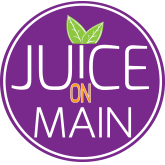Natural Sugar Vs Refined Sugar
BY APRIL PASCARELLI
From birthday party goodie bags to your grandmother’s pocketbook, you will likely find something sweet inside. Whether it be lollipops, taffy, gum, or granny candy, there’s one thing for sure - sugar grabs ahold of us at the earliest of ages. Sugar has been a hot topic for decades and is the source of many studies. Some have even compared it to cocaine due to its addictive qualities and the withdrawal symptoms when you try to halt the habit. Though its effects are pretty diminished in comparison, sugar is by no means a health food. But sugar comes in many forms and is found in many foods. So, are there times when eating this much-craved carb might be okay? Keep reading for more on this subject matter and what foods to eat to shake off any summertime sugar blues.
Breakdown of the Basics
Sugar is a carbohydrate that occurs naturally in many foods. And our body uses carbohydrates as energy. But, food production companies sneakily add sugar to many products, making them sweeter and training your brain that it’s better. The opioids and dopamine released in our bodies when we eat sugar have you returning for more. The problem with this sugar addiction is that it causes a person’s blood sugar levels to become too high and adversely affect one’s health. The guidelines that are in place recommend that people should limit their daily sugar intake.
So, how much sugar should we have in a day? No more than 10% of your total daily calories according to the FDA, but ideally, even less than that (closer to 5%) per the American Heart Association. Based on a 2000 calorie-a-day diet, 10% is approximately 48 grams of sugar, or 12 teaspoons, daily. Cut that in half to 6 teaspoons, and one can of soda would already put you above the recommended amount at 10 teaspoons. For children, this amount should be even less. And for kids aged two and under, there should be no added sugar in their daily diet. Unfortunately, most kids are exposed well before the age of two.
Sugar takes shape within our food under so many aliases, so it’s best to be aware. Check your food labels, and you will see fructose, glucose, sucrose (these three are all found naturally in fruits and vegetables), lactose (found in dairy), honey, agave nectar, maple syrup, white (table) sugar, palm sugar, cane sugar, brown sugar, fruit juice concentrate, corn syrup, high fructose corn syrup (the most processed and unhealthiest of them all), and the list goes on. Geez!
Natural vs. Added Sugar
Something to keep in mind is that natural sugars are in foods that contain nutrients to keep your body healthy and offer fast but solid energy. Natural sugar is digested slower than added sugar and can help keep your metabolism stable, which is good news considering that too much sugar can lead to weight gain in time. Naturally occurring sugar in fruit, starchy vegetables, whole or minimally processed foods like brown rice or whole grains, and 100 percent fruit and vegetable juices (ahem, there’s this juice bar I know…) get the thumbs up. They provide essential nutrients like potassium, folate, vitamin C, and fiber. Lactose, a natural sugar in dairy products, is often considered okay. Though the majority are lactose intolerant, and most of the foods containing lactose are most definitely not considered health foods.
Conversely, refined sugars generally stem from a natural source that has already been processed, so only sugar remains. Think granulated sugar from sugar cane or corn syrup from corn. Refined sugars are also broken down differently within our bodies. They cause insulin and blood sugar levels to spike. But, no matter how you break down the facts, there is nothing about refined sugar that is good for our health.
Foods with refined sugars or added sugars also offer unnecessary calories while lacking other beneficial nutrients. Think processed and prepared foods, and things like cookies, cakes, candy, ice cream, pastries, sugary breakfast cereals, yogurt, jams, soda, salad dressing, and traditional store-bought juice.
The Moral
Simply put, refined - or added sugars are any sugar that has been added to the food at some point, while natural sugars occur intrinsically already in the food. Knowing the difference is an important distinction when it comes to your health. Intake of added sugar over the past several decades has contributed to higher rates of weight gain and obesity, type 2 diabetes, and cardiovascular disease. But, sugar is sugar, right? Wrong! Not all sugar is created equal. It is metabolized similarly within our bodies, but its effect on our health is quite different. It may all seem tricky and confusing (especially as a consumer) when navigating the world of nutrition and making positive changes in your diet, but it doesn’t need to be complex.
Natural sugars from fruit and the added refined sugars that you find in pastries are actually quite different. And our bodies do not need, nor do they benefit, from eating added sugars. Here’s an easy way to know if the sugar you’re eating is okay. Consider a cupcake and an apple. Both have sugar. But, which do you think is nutritionally better for your body? If you choose your sugars based on the company they keep, meaning, what other nutrients they will provide for your body, then you can never go wrong. There’s so much more than can be said on this subject but we’ll keep this short and semi-sweet. So, here’s to healthy snacking, curbing the cravings, and choosing your foods wisely!

